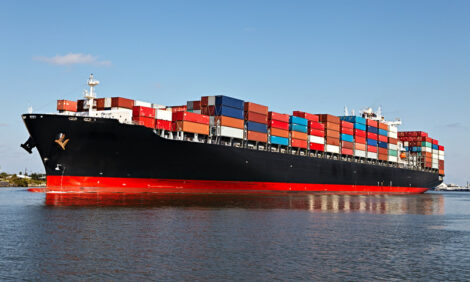



New US ag trade chief aims to diversify export market beyond China
New trade chief interested in specialty crops, organics, biofuelsUS chief agricultural trade negotiator Doug McKalip wants China to keep striving to meet US farm goods purchase commitments under the 2020 "Phase 1" trade deal, but told Reuters that he also is pushing to diversify exports beyond the biggest US grain customer.
In his first media interview on Thursday since his Dec. 23 Senate confirmation of his US Trade Representative office post, McKalip said that his top priority was opening new markets for US agricultural products.
"I think for the American farmer, it's important to have a diverse set of buyers out there," he said. "We need to develop additional markets."
China will remain an important top customer, he said, a day after US. Census Bureau trade data showed China reached a record $40.85 billion - nearly a fifth of global US farm exports that also reached a record $213 billion.
The purchase values, aided by sharply higher grain prices due in part war-constrained supplies from Ukraine, meant that China would have satisfied the 2020 target outlined in the Trump administration's Phase 1 trade deal - goals that China failed to reach in the prior three years.
"We'd certainly like to see their purchases be closer to the top numbers that they agreed to," McKalip said of China.
He added that USTR was "not asking for a favour. We're just asking them to do what they signed onto when they signed Phase 1."
NEW MARKETS, NEW PRODUCTS
Every continent has potential markets for US row crops, grains and other staples, and the Ukraine war means demand for these will stay high, he said, but there were many other new export opportunities to pursue.
"I'm interested in specialty crops, organics, biofuels, all kinds of emerging areas of US agriculture that I think are exciting, and that I think consumers out there want," McKalip said. "We just need to make sure we're in a position where other governments don't have barriers" to such products.
Southeast Asia represents an important region to expand US farm exports, and McKalip said he intends to work on reducing trade barriers through the Biden administration's Indo-Pacific Economic Framework negotiations.
Although the talks are not expected to result in any tariff reductions, McKalip said that "regulator-to-regulator" discussions for improving standards for using land and water resources, conservation, and farm labor standards can help level the playing field in such talks.
McKalip also told Reuters that he has asked Mexico to explain the science behind its genetically modified corn ban and that USTR also wants Canada to broaden US access to its dairy import quotas to resolve a second US trade challenge.



